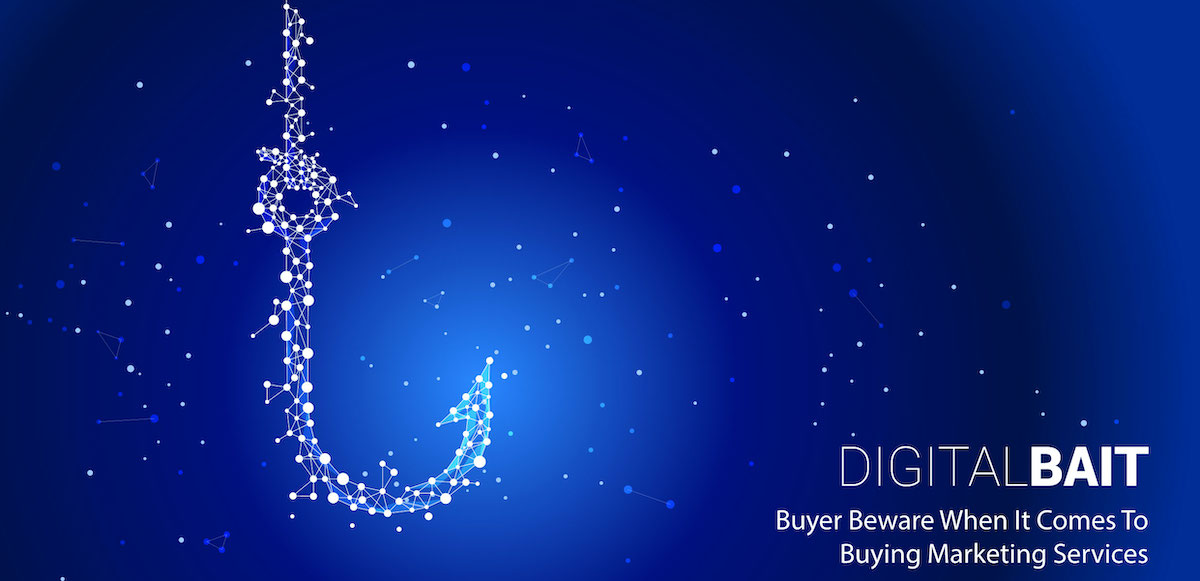I get more calls, now more than ever, from physical therapy clients trying to figure out how to build their practice back up to where they were pre-COVID.
This article is about some of the predatory marketing practices that I’ve seen in a number of online advertisements, as well as complaints I’ve heard from a number of PT business owner.
- One paid $12,000 and didn’t get a single new patient in the two months they used them.
- Another paid $17,000 for marketing training – no new patients
- Another practiced owner estimated that they had spent over $100,000 in marketing services and it was a huge loss.
If you are a PT practice owner (I used to own a practice), you feel bad for these owners. All they want to do is care for their community and make a reasonable living doing so.
It has to be said that there are also a number of ethical marketing companies in the physical therapy space.
- Online marketing companies use tactics to get you to buy
- Here are 10 of them to be aware of if you are going to invest
- Work with an online marketing company that knows physical therapy
- Marketing companies have an obligation to provide ethical services
This piece is about companies that have aggressively targeted physical therapy private practice owners during the COVID crisis, fully aware of their limited business/marketing knowledge, as well as knowing that their products are unlikely to help their customers achieve the results that are being sold to them.
Desperate Times Can Lead to Bad Physical Therapy Marketing Decisions
It’s easy to understand why some practice owners face such a great challenge, when it comes to discerning good marketing versus bad marketing, especially when they’re desperate.
After all, if you’re faced with having your career, passion to help others, as well as all of the blood, sweat, and tears you’ve invested in your private practice business, stripped away, it’s easy to see why some clinic owners fall for these tactics.
At the end of the day, of course, the consumer is responsible for what they buy but, some of the psychological tactics end up leading to purchases that Even when implemented as instructed, will not have a positive benefit on the practice. It’s the marketers that are selling information products and services fully knowing that the results are unlikely to be achieved by a majority the purchase them, that I have a problem with.
Quick Backstory – Marketing Tactics Can Be Used for Both Good & Bad
Here are 10 ways to determine if a marketing company is likely to be disingenuous, but first, here’s a quick backstory: There have been many information marketers that have achieved great success selling their knowledge, experience, and services to others online.
Many of these information and service marketers use psychological sales/marketing techniques to persuade prospects to become buyers.
While some of these marketers do indeed offer quality information and services, many don’t. Moreover, the psychological formulas/sales tactics these predators use are so common, they’re very easy to identify.
10 Ways to Recognize if a Webinar is Offering Something that’s Unlikely to Get You the Physical Therapy Promotion Results You Want
So, here are some easy ways for you to recognize if an advertisement and/or a sales webinar is likely to be offering something that isn’t going to get you the results that they promise.
- A rags to riches backstory. So many people that sell information online report that they went from having next to nothing to riches. Redo this to make it seem like anyone can achieve similar results. Fact is, to achieve remarkably remarkable results, takes a tremendous amount of work over an extended period of time. In fact, one of the true cornerstones of marketing is repetition.
- Extraordinary income as a result of using the product. I’ve seen it many times, marketers saying if you use our product you can double your business, you can have a seven-figure practice, you can have your best month ever. While these results can sometimes be attained under rare circumstances, most of the time marketers are selling the outliers, the very best cases, results that are unlikely to be able to be repeated over and over. Worse yet, when people buy these products and try to implement what they’ve learned, and don’t get the results they are sold, they’re made to think that is their fault rather than the bad information that they’re sold. Often times people that buy these products are unwilling to speak out against them. They feel like they should’ve got results but it was their own fault that they didn’t. Fact is, extraordinary real results or just those extraordinary. When it comes to marketing getting a one, two, or 3% return on your marketing efforts is typical. In most other things in life if you got a 12 or 3% return on anything would be considered a failure. Having the proper expectations is important when it comes to implementing any marketing program.
- Wishful identification. This is the next indicator that a product might NOT be a good one to buy. When the salesman is pitching you what life could be like before and after the use of the product, they’re playing upon your desire to attain a certain outcome. Again common sense applies. If the use of a product or service made it so easy to get rich quick, why would this marketer be selling it. Wouldn’t they just be doing it themself? Why would they share? If your goal is to double or triple your practice, you have to understand that to get to this place in business takes time, a considerable monetary investment, A willingness to test and retest, and some significant risk.
- Demonstrating significant material reward. Many of the marketing gurus that sell information products will demonstrate their success by showing themselves in a new Lamborghini/sports car (that is probably not even theirs) or in a multi million dollar mansion, you don’t see this as much from marketers that are selling information to PhysicalTherapy ‘s. However, displaying materialistic rewards as a result of newfound knowledgeAnd a secret strategy that no one else has ever heard of, her common psychological tricks to get you to think that you too can achieve exceptional financial success.
- Disguising their sales pitch as free expert information. A common tactic is to promise to reveal something unique, something extraordinary, something that no one has ever seen before, something that is new, something that is different, something that has been successful in another industry and now has been discovered to be successful in the physical therapy industry, all in the name of getting you to sign up for a webinar or a podcast. Now the information marketer has your name and email address and is going to drip market on you and tell you or in a week position financially in our desperation to find a solution. This is a common sales tactic. Moreover, this free information almost always ends up being a sales pitch for their product. How many times have you heard that you can do “what I’ve told you on your own,“ or you can buy my product and achieve things much easier. Now, well this is sometimes true, the tactic of promising free, unique, or secret information so that you’ll listen to the sales pitch is what information marketers are really after.
- The heavily discounted product. Another strategy that information marketers used to sell their information is a heavily discounted product it’s very common for these marketers to say that they offered this information in a live course or as a video series but today we’re discounting it by not just 50% but 90% so it appears to be affordable for everyone. Moreover when you add on a couple of key psychological sales tactics like urgency (a deadline to buy the product) and scarcity, a limited number of the products being made available, it makes the information product even more attractive. You can get it at a discount price but you need to get it before the inventory runs out and the discount deadline expires.
- Bonus after Bonus. Offering multiple additional bonuses on top of the main product is a common sales tactic. These bonuses are often used to make the entire package appear even more attractive. One way this is achieved itactic by marketers is through the use of an OTO or one time offer. You buy the main product but before you have the chance to start consuming the information, product or service you purchased, the marketer offers you a one time offer called an OTO. Moreover, it’s also common to upsell the prospect on more than one OTO. If the prospect doesn’t buy the first one time offer, then a common strategy is to down sell them the same thing at a lower price or offer even a different OTO. The net result is additional income in the marketer’s pocket.
- Inflated value. What inflated value means is it if you were to buy individual components of the package that is offered, it was some up to be much more expensive than the cost of the product they’re trying to sell plus all of its bonuses. This tactic is called inflating the value of your product. Again, it makes the information product’s Price with all that’s included bonuses as noted above, much more attractive.
- End the price in a seven (e.g. $497, $997, or $1997). This strategy comes from research that demonstrates of the prices the end of the seven are more likely to be purchased then Products that have a price and in a zero or a nine.
- Risk reversal. This sales tactic is used to limit risk for the buyer. Offering a product guarantee or even the price you paid plus money back is again away to minimize risk. While this is an attractive offer to a prospect, if indeed the marketer will honor the guarantee, if the marketer makes it difficult for you to obtain your money back, add stipulations on a refund offer within the fine print ( e.g. you have to complete every single task in the information product or you can’t get your money back), or if the marketer simply understands that some people will buy the information product knowing that a certain percentage of paying customers will be too lazy, not have the time, or will simply for get to ask for their money back. In all of these cases it’s advantageous for the marketer to offer some sort of risk reversal.
You Have to Invest in Marketing to Survive

We at E-rehab are first believers that the best care provided to patients occurs in a small private practice. So, it’s important that you invest money (i.e. put in a dollar and make more than a dollar back) in your marketing. E-rehab provides the best value, incredible customer service, and a suite of tools and marketing support to help any small practice. Make sure you invest to survive.
We Marketers Have an Obligation to Provide High Quality Services
Everyone in the PT industry has an obligation to provide great service to not only patients, but those that support PT clinic owners as well. Vendors should also feel an obligation to provide great information, products, and services to the physical therapy clinic owners that are for them as well.
For those vendors that don’t, I hope the information above helps practice owners tease them out.
Looking for an Honest & Ethical Marketing Company? Give Us a Call at (800) 468-5161 or Click Here to Schedule Some Time with David Straight
*Some of the information presented above is based on Mike Winnet’s Contrepreneur Formula https://youtu.be/vC5cmW8O3L8


Leave a Reply
You must be logged in to post a comment.